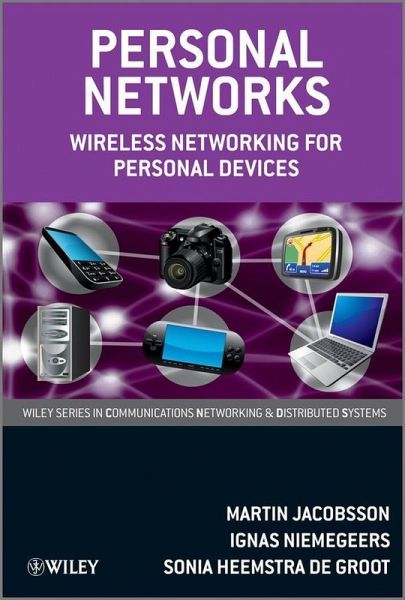
Personal Networks (eBook, PDF)
Wireless Networking for Personal Devices
Versandkostenfrei!
Sofort per Download lieferbar
91,99 €
inkl. MwSt.
Weitere Ausgaben:

PAYBACK Punkte
0 °P sammeln!
Written by experts in the field, this book describes the Personal Network architecture and its various components This book focuses on networking and security aspects of Personal Networks (PNs). Given a single user, the authors propose an architecture for PNs in which devices are divided into one of two types of nodes: personal nodes and foreign nodes. Furthermore, the authors demonstrate the ways in which PNs can be formed in a self-organized and secure way, how they can be interconnected using infrastructure networks, how multiple PNs can be connected, and how their services and resources ca...
Written by experts in the field, this book describes the Personal Network architecture and its various components This book focuses on networking and security aspects of Personal Networks (PNs). Given a single user, the authors propose an architecture for PNs in which devices are divided into one of two types of nodes: personal nodes and foreign nodes. Furthermore, the authors demonstrate the ways in which PNs can be formed in a self-organized and secure way, how they can be interconnected using infrastructure networks, how multiple PNs can be connected, and how their services and resources can be shared. In addition, the book shows how security and ease-of-use can be achieved through automatic configuration and how mobility can be supported through adaptability and self-organization. The motivations for the PN concept, the PN architecture, its functionalities and features, as well as future challenges are covered in depth. Finally, the authors consider the potential applications for PNs and briefly discuss additional support systems for PN applications. The latter includes service discovery and context information management among others. Key Features: * Describes the PN network architecture and its various components in-depth * Written by experts who developed this concept * Discusses the newer topic of federations of PNs * Considers potential PN applications, and demonstrates how applications support systems, such as service discovery and context management, can assist the applications * Provides an insight into the challenges of future personal networking, architectures for PNs, potential and important solutions, and their implications This book will serve as an invaluable reference for researchers, developers, and standardization experts in mobile and wireless communication systems and services. It will also be of interest to postgraduate students in the field of telecommunications.
Dieser Download kann aus rechtlichen Gründen nur mit Rechnungsadresse in D ausgeliefert werden.












